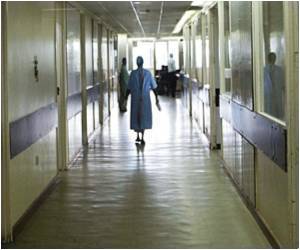
The bill also drove the founder of the emergency medical services unit to quit, but the widely-respected Raed Arafat was later reinstated and the bill withdrawn after tens of thousands of Romanians had protested in the streets.
But experts stress that the system cannot survive unless it is overhauled.
"Steps must be taken to reduce the hospitals' payment arrears, and improve access to and the quality of health care," Richard Florescu, human development director at the World Bank's office in Bucharest, told AFP.
Romania's centre-right government last year pledged to curb its public deficit in exchange for a back-up agreement with the International Monetary Fund (IMF), the World Bank and the European Union.
The deal included measures to streamline health expenses by closing dozens of derelict, poorly-equipped hospitals.
Advertisement
Analysts however warn that much of the funding has been wasted, pointing to corruption and mismanagement.
Advertisement
"No matter how big it may be, the health-care budget will never be enough because a lot of the money gets siphoned off," said Vasile Barbu, the head of the Patients' Protection Association.
He blamed the corruption on the current state-controlled health insurance system, which enables firms held by politically powerful cronies to get most of the public procurement contracts.
Under the scrapped reform bill, private insurers were to have replaced the state-owned ones, a move meant to uproot corruption. However, analysts warn that in the absence of a detailed roadmap and strong checks this will not lead to any improvement.
But corruption takes more than one form in Romania, where slipping money into the doctors' and the nurses' pockets is the rule.
"The first thing I did after being admitted to hospital for bladder surgery was to inquire about the surgeon's and the anaesthetist's 'fares'," said Monica Petre, 79, a Bucharest retired engineer.
Daily Evenimentul Zilei last week published a "fare guidebook" for patients, listing bribes of up to 500 euros for a Caesarian section and 3,000 euros for brain surgery.
A study financed by the World Bank showed that informal payments in Romania's health care amount to roughly 300 million euros a year.
Analysts warn that as long as physicians' wages remain around 500 euros a month, or a tenth of their western peers, graft will continue to flourish while medical staff will emigrate to western countries.
"If we solve the sector's major problems, the issue of doctors' pay will be resolved too," Dan Perieteanu, vice-president of the physicians' union, told AFP.
Despite health officials' efforts to encourage preventive care, many Romanians seem to trust hospital medics more than general practitioners and tend to go straight to emergency units when they fall ill.
Patients also complain of an "inhumane system", where a lack of respect and empathy is more of an issue than outdated equipment and drug shortages.
"There are dedicated doctors, but patients are often treated in a deplorable way, from the way medical staff address them to the care, or lack of, they get," Ana, a 31-year-old Bucharest philologist who suffers from a serious illness, told AFP.
Source-AFP










